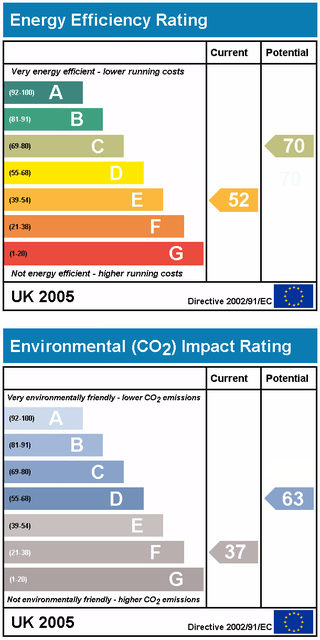What is an Energy Performance Certificate (EPC)?
An Energy Performance Certificate (EPC) is a legal requirement for properties in the UK that are being sold, rented, or built. It provides an energy efficiency rating from A (most efficient) to G (least efficient) and includes recommendations to improve energy use and reduce carbon emissions.
Why is an EPC Important?
- Legal Compliance: Required for selling or renting a property.
- Energy Savings: Identifies ways to lower energy bills.
- Environmental Impact: Helps reduce your carbon footprint.
- Property Value: A high EPC rating can increase property appeal.
How to Get an EPC?
You must hire an accredited Domestic Energy Assessor to inspect your property and issue the certificate. The process usually takes less than an hour, and the EPC is valid for 10 years.

Energy Performance Certificate (EPC) – Everything You Need to Know
What is an EPC?
An Energy Performance Certificate (EPC) is a report that shows how energy efficient a property is. It gives your home or commercial property a rating between A (very efficient) to G (inefficient) and provides practical suggestions on how to improve the rating. Whether you’re selling, renting, or building a property, an EPC is legally required in the UK.
Why Do You Need an EPC?
Getting an EPC isn’t just about ticking a legal box – it’s also about understanding how your property performs and how you can save money. Here are the main benefits:
- ✅ Legal Requirement when selling or letting a property
- 💷 Reduce Energy Bills with suggested improvements
- 🌍 Lower Carbon Emissions and be more eco-friendly
- 🏠 Improve Property Value & Appeal to buyers or tenants
- 📄 Valid for 10 Years, unless major changes are made to the property
Who Needs an EPC?
You’ll need an EPC if you are:
- Selling your home or flat
- Renting out your property (landlords are required to provide one)
- Constructing a new build property
- Applying for certain green grants or mortgages.
Landlords must ensure their properties meet a minimum EPC rating of E or above. Failing to comply can result in fines of up to £5,000.
What Does an EPC Include?
An EPC contains:
- The current energy efficiency rating
- Potential rating if recommended changes are made
- Estimated energy costs
- Detailed recommendations to improve the rating
- Environmental impact (carbon dioxide emissions)
How Much Does an EPC Cost?
The cost of an EPC varies depending on the size and location of the property, but you can typically expect to pay between £50 to £120. It’s best to compare local EPC assessors for the best price.
How to Get an EPC?
To obtain an Energy Performance Certificate, you must book a visit with an accredited Domestic Energy Assessor. The inspection takes about 30–60 minutes and includes checking insulation, heating systems, windows, and other key elements of your property.
🔍 Search “EPC assessor near me” or use the official UK government site to find a certified professional.
EPC for Commercial Properties
If you own or lease commercial premises, you’ll need a Non-Domestic EPC. These follow a similar format but are assessed slightly differently. Always check whether your building falls under residential or commercial guidelines.
How to Improve Your EPC Rating
Boosting your EPC rating is a smart investment. Here are common upgrades that make a real difference:
- Add loft or cavity wall insulation
- Install double or triple glazed windows
- Use low-energy lighting throughout
- Upgrade to a modern energy-efficient boiler
- Add solar panels for renewable energy use
- Seal up drafts and improve ventilation
FAQs About EPCs
❓ How long does an EPC last?
An EPC is valid for 10 years.
❓ Can I sell my home without an EPC?
No. It’s illegal to market your home for sale or rent without a valid EPC.
❓ What if my EPC rating is too low?
Landlords must make improvements or risk fines. Homeowners are encouraged to improve for better energy savings.
